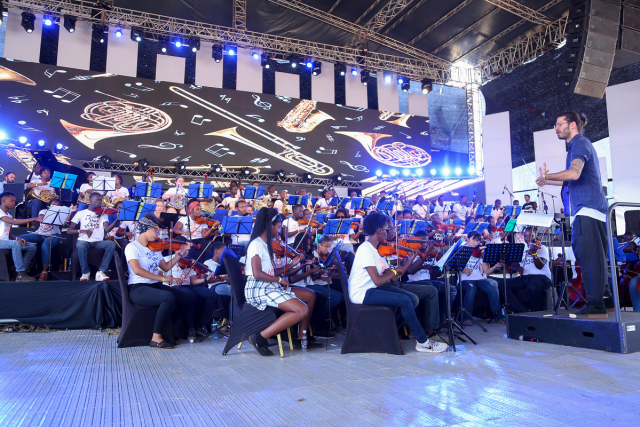
For the past 5 years, safaricom international jazz festival has given the best of local and international jazz music through the electric performances and getting the fans to move to the rhythm and the sounds of the jazz music legends. This year the 5th Safaricom international jazz anniversary was held on 25th of February 2018, at Kasarani stadium; training grounds. The event was graced by the well-known American trio BwB composed of Norman Brown a guitarist, Kirk Whalum a saxophonist and Rick Braun a trumpeter.
Other jazz music personalities that joined the BWB stage include Mambo Tribe and Limericks the Kenyan favorites, Betty Bears from Israel, Lean from Belgium, Joja Wendt from Germany, Gloria Bosman from South Africa, Jimek from Poland and also the Ghetto Classics.
Since its launch in February 2014, Safaricom International Jazz festival has contributed over KES 37 million (USD 365,360) to help in the transformation of lives of not less than 1400 young boys and girls who are below 18 years of age through music and education.
This year Safaricom anticipates to raise a further KES 20 million which is all aimed at supporting the Ghetto Classics which is a program that is community based and which through the link up program involves at least 900 children from korogocho, 10 satellite areas around Nairobi, 1 in kiambu and 4 in Mombasa. Through this program, youths have been instilled with life skills which come with art music studying discipline hence bestowing them with chances of bettering themselves and also their community.
Through this program, some students have luckily secured places in Safaricom Youth Orchestra (SYA) which also supports their basic needs like food, school fees, shelter as well as clothes. Others have discovered hidden talents while a good number have been able to improve their grades in school as well as the school mean score.
Through the Ghetto classics program, tutors have been able to access and own their personal musical instruments which has led them to creating their own band and performing at community events. Through music, communities have been empowered with education and wide experience towards life hence increasing the sense of belonging and ownership of community activities. This program has created a brighter future for those youths giving back to the society by instilling them with a sense of responsibility and leadership. The opportunity of earning and incoming from other musical skills has led to an increase in the tutors’ morale to continue with their music careers.
The Ghetto classics program has also been a tunnel of promoting peace in the communities as most youths involved in the program spend their free time learning and teaching music.



